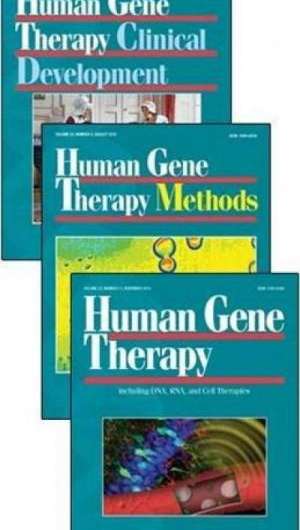Novel gene therapy enables persistent anti-tumor immune response

Cancer immunotherapy can successfully use the body's own immune system to kill tumor cells. But some current approaches to stimulate an antitumor immune response are short-lived, with limited clinical effectiveness. A new gene transfer strategy that introduces modified, immune-stimulating human stem cells is both feasible and effective for achieving persistent immunotherapy to treat leukemias and lymophomas, according to a study published in Human Gene Therapy.
Satiro Nakamura De Oliveira and coauthors from the David Geffen School of Medicine, University of California, Los Angeles and University of Texas MD Anderson Cancer Center, Houston, describe the gene transfer method they developed to deliver chimeric antigen receptors, or CARS, that direct the immune system to target tumor cells derived from B-lymphocytes.
In the article "Modification of Hematopoietic Stem/Progenitor Cells with CD19-specific Chimeric Antigen Receptors as a Novel Approach for Cancer Immunotherapy" the authors show that by packaging the CARS in human hematopoietic stem cells, the immunotherapeutic receptors will be produced in the bloodstream for a long period of time. This persistent expression should improve their effectiveness in the treatment of blood cancers such as leukemia and lymphoma.
"This study represents an interesting new direction for an approach that has generated substantial interest," says Dr. Wilson, Director of the Gene Therapy Program, Department of Pathology and Laboratory Medicine, University of Pennsylvania Perelman School of Medicine, Philadelphia.
More information: The article is available on the Human Gene Therapy website.
















